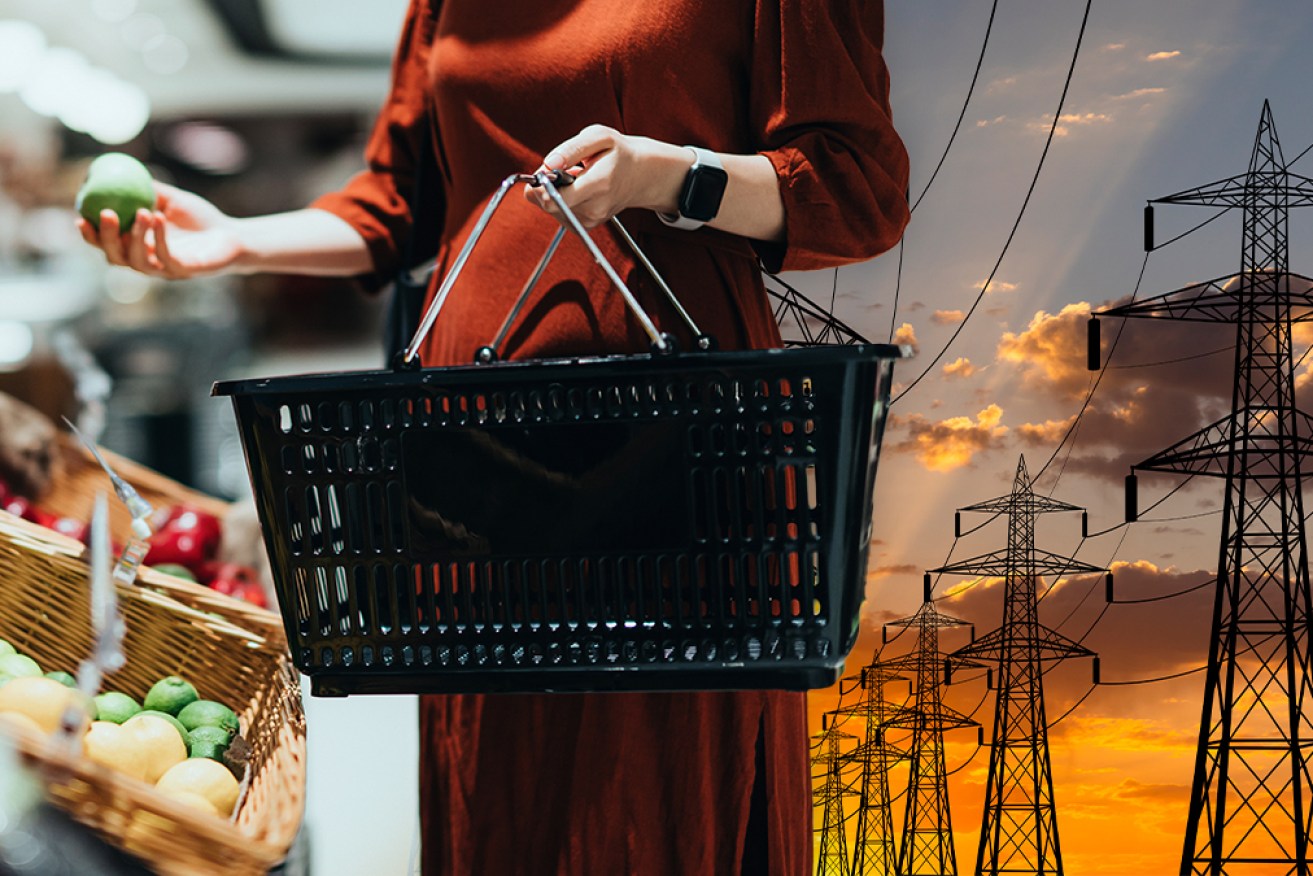Households slammed as budget offers little relief from massive inflation wave


Australians are going to be feeling the pinch as the cost of household bills and groceries soars. Photo: TND
Bend your mind back to September 2006 – a time when a bag of bananas could break the family budget.
Cyclone Larry had just decimated north Queensland, destroying trees producing almost 200,000 tonnes of bananas and sending prices to more than $15 a kilogram (about $22 in today’s dollars).
With so many crops flattened, we were all forced to get more inventive with our recipes.
Sweet potato and apple sauce went into cake batter instead, and it was cheaper to make a morning smoothie with chia seeds and avocados.
Now, households don’t even have the option to swap for less expensive substitutes. Annual inflation reached a 32-year high over the September quarter – affecting everything on the shelf, including food staples.
Bread and cereals cost 10 per cent more; milk costs 16.2 per cent more; eggs are up 10.4 per cent; coffee has risen 10.7 per cent; and vegetable prices are 17.2 per cent higher than usual.
“Every time I look something has gone up another 50 cents,” Stephen, a retiree in Melbourne’s northern suburbs told TND outside a supermarket.
“I don’t know how people are coping.”
Grin and bear it: Budget’s tough message
The 2006 banana shortage shows us how natural disasters can quickly have a flow-on effect for our food budgets.
When shocking events like cyclones and the floods we’ve seen in recent weeks come on the back of a much larger inflationary wave things become tougher – because it’s not just groceries that are affected, it’s nearly every bill coming in the mail.
The federal budget earlier this week forecast an astonishing 56 per cent rise in electricity bills over the next two years, while gas and household fuels are already up 10.9 per cent.
Against this backdrop, Treasurer Jim Chalmers’ first budget on Tuesday was noticeably light on cost-of-living relief. Though Labor unveiled childcare subsidies and reduced medicine costs, these reforms won’t be in place for months and won’t help everyone doing it tough.
Plus, a $12.50 discount on some prescriptions is scant comfort against an energy bill that has risen by hundreds of dollars.
Households are being asked to grin and bear an 8.8 per cent annual rise in prices for essential goods, while annual wage growth languishes below 3 per cent.
Dr Chalmers said the government was wary of “spraying cash” on cost-of-living handouts that would make inflation worse by propping up demand for goods and services, and therefore making it easier for business to pass on further price hikes.
But while economists agree that a package of general support – such as the $16 billion handed out in the pre-election March budget – would have been irresponsible, some argue for a package of relief targeted at Australia’s most vulnerable households.
Independent economist Nicki Hutley said while the budget was economically responsible, there was often tension between this and helping households cope with rising inflation.
“This budget was sensible, but things are incredibly difficult,” she said.
“I would have liked to have seen temporary and targeted relief.”
Wage growth is missing in action
The next six months are going to be difficult for millions of households.
The Reserve Bank is tipped to pass through a seventh straight rate hike next week, adding another $77 to typical mortgage bills, while inflation is set to peak at 7.75 per cent over the December quarter.
Wage growth, meanwhile, will not keep pace with rising prices, according to Labor’s own budget forecasts, which predict real wages – a measure of purchasing power – will fall by at least two percentage points between now and June 2023.
It’s a far cry from Prime Minister Anthony Albanese’s promise of higher wage growth during the election campaign – real wage growth will only return in 2024, according to budget forecasts.
KPMG Senior Economist Sarah Hunter said the predictions are “confronting”, noting that Labor’s next opportunity to offer assistance would be in the March budget next year – mere months away.
“A potential option for the government is to look at very targeted relief, rather than payments for all households you could look at payments to some,” Dr Hunter said.
“If you’re looking at also not adding anything to the economy overall – to avoid stimulating it in aggregate – you can look at adjustments elsewhere to match off against that.”









